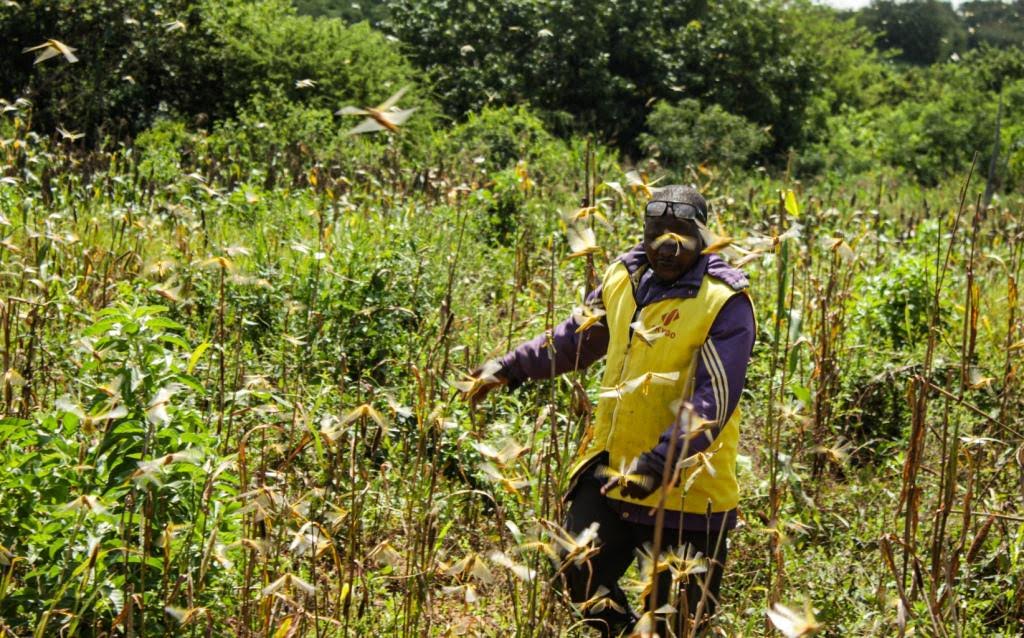Uganda intensifies fight against locusts

Over 2,000 army and civilian personnel are combing up bushes in the northeastern part of the country to hunt down desert locusts that migrated from neighboring Kenya after causing havoc.
Armed with spray pumps, the military are hunting down the locusts that experts warn are likely to cause harm by destroying crops and pasture for animals if urgent attention is not taken.
“In any response to the locusts, it is critical that we know their location, that we know the size of the swarm, that we know the stage of the locusts and it is fundamental that we have the manpower to respond to the infestations,” Antonio Querido, UN Food and Agriculture Organization(FAO) representative in Uganda told Xinhua on Friday.
“What we have seen is that there are more swarms coming in, however, it is still early to assess the impact of the infestations. It will take some time to assess the damage and to organize the response,” he added.
The country’s central bank, Bank of Uganda, on Thursday warned that agricultural production is likely to be constrained by the invasion of locusts. The bank, in its monetary policy for the month of February said the invasion could weigh down economic activity.
Martin Owor, commissioner for refugees and disaster preparedness in the Office of Prime Minister, is optimistic that although some locusts have moved to the northern part of the country, the ongoing efforts to contain them will yield results.
In his daily update on Thursday, he said that over 3 million locusts had been killed through spraying although the swarms are still big.
He said the locusts are sprayed in the mornings before the day heats up to enable them fly away.
Owor said drones and hand sprays are being used and spray planes are expected in the operation area soon.
Querido said international organizations are providing technical support and mobilizing resources for Uganda as it strives to fight the locusts.
“It is a regional threat for food security and we hope our support will complement local efforts,” he said.
Uganda last experienced a major locust invasion 70 years ago, which caused immense damage on crops, according to the agriculture ministry.
According to FAO, the desert locust is considered as the most destructive migratory pest in the world and a small swarm covering one square kilometer can eat the same amount of food in one day as 35,000 people. (Xinhua)













